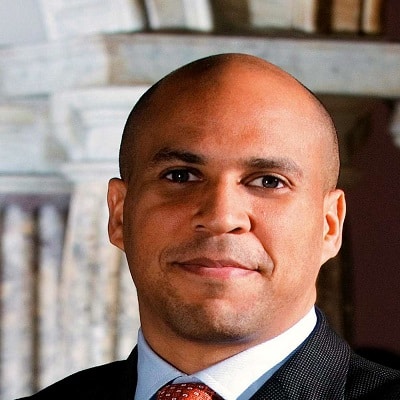 By Keith Stroup, NORML Legal Counsel
By Keith Stroup, NORML Legal Counsel
If anyone would have suggested a year ago that Ohio might be on the verge of legalizing marijuana in 2015, I would have laughed at the idea.
First, Ohio is a conservative Midwestern state that is seldom, if ever, on the cutting edge on social issues. And second, 2015 is an off-year election, with no statewide or federal elections, meaning the voter turn-out would be lower and the likely voters would be older and less supportive than would be the case if the proposal were on the ballot in 2016, a presidential election year when younger voters turn out in far higher numbers.
But it turns out that Ohio voters may well be voting on marijuana legalization this November. And the circumstances surrounding this development raise new issues that legalization activists are struggling to deal with. The proposed constitutional amendment, called the Ohio Marijuana Legalization Initiative, sponsored by a group calling itself Responsible Ohio, would legalize both the medical and the recreational use of marijuana.
We have a scarcity of polling data that would indicate whether the voters in Ohio currently support marijuana legalization. A Quinnipiac University poll taken in 2014 found strong support for medical marijuana, and an almost even split (51 percent support) over full legalization. One can presume the sponsors of this initiative must have done their own private polling, but if so, they have not shared the results.
Investor Driven Voter Initiatives
But what is unique about this effort is that it is being funded by a few rich private investors who, under the terms of the proposed initiative, would then own the 10 specific cultivation centers around the state authorized to cultivate marijuana commercially. In other words, those investors who provide the funding to gather the required number of signatures, and to run a professional statewide campaign, would be richly rewarded for their investment, assuming the initiative is approved by a majority of the voters.
Individuals would be permitted to cultivate up to four marijuana plants privately, and retail dispensary licenses would be open for all to apply for licenses, but the commercial cultivation would be limited to what the Rand Corporation has described as a “structured oligopoly.”
As might be expected, this proposal, which would enshrine this special privilege for these investors in the state constitution, has met with some cries of outrage from some in the Buckeye state, both legalization activists and the state legislature.
Some activists have raised objections to the proposal because it would not permit average Ohioans to compete for the commercial cultivation licenses, although ordinary citizens would be entitled to apply for licenses for the more than 1,000 retail dispensaries that would be authorized, claiming it is undemocratic. Some opponents have even argued it would be worse than the current prohibition — despite the fact that roughly 17,000 marijuana arrests occur each year in Ohio, and those arrests would largely be eliminated if this initiative were to pass.
The Legislature Inserts Itself In The Fight
But the situation in Ohio has become even more confusing because of the action of the Ohio legislature, in response to the filing of the Responsible Ohio initiative. The legislature has elected to use an option available to them (they are permitted this option by their state constitution, without the need to collect signatures) of adding a second voter initiative to the ballot this November that, if approved by the voters, they believe would render the Responsible Ohio proposal invalid. The proposal would ban the adoption by voter initiative of attempts to benefit select economic interest groups.
The sponsor of this initiative, Democratic House member Mike Curtin, said he sponsored what he called his “anti-monoply” measue, not because he opposes the legalization of marijuana, but because he opposed the way Responsible Ohio is using the ballot measure to enrich themselves.
What If Both Initiatives Are Approved
Should the Responsible Ohio initiative be approved for the ballot, which is not yet certain (they recently turned in 695,273 signatures, more than double the 305,591 signatures required; but the Secretary of State’s office determined that only 42 percent of those were valid signatures, an unheard of failure rate, leaving them 29,509 signatures short, and 10 days to make-up the deficit), then the confusion really kicks-in.
Ohio law appears to say if the two initiatives both pass, then the one with the highest number of votes would become effective. But Secretary of State Jon Husted, a Republican who opposed legalization, has announced his opinion that should the legislative proposal pass, it would take effect 30 days earlier than the citizen initiative, and would thus block the other proposal from taking effect. The only certainty is that should both initiatives pass, and the citizen initiative receive the higher total of votes, this is an issue that will eventually be decided in the Ohio courts.
So the question becomes whether groups such as NORML should get involved in the fight over who gets rich off the legalization of marijuana, or whether we should continue to focus on ending the practice of treating marijuana smokers like criminals, and the establishment of a legally controlled market where consumers can buy their marijuana in a safe and secure environment, and leave these economic fights to others. At the national level, this seems like an easy decision.
Some people get rich off of marijuana legalization, wherever it is adopted. There are scores of successful entrepreneurs who have surfaced in Colorado and Washington, and who are beginning to surface in Oregon and Alaska, creating new businesses and new jobs, and sometimes getting rich in the process. The phenomenon is know as the “Green Rush.” So we should not act shocked to learn that someone is going to get rich off marijuana legalization in Ohio, should it occur.
Nor should opponents act so offended by the fact that average citizens in Ohio do not have the resources to be part of those investors who would control the commercial cultivation licenses. In many of the states that have legalized marijuana for medical use, for example, the licenses to cultivate or dispense the marijuana have been quite limited, and enormously expensive.
In Massachusetts, for example, those seeking a license to commercially cultivate marijuana were required to put $500,000 in escrow before their application would even be reviewed. And in Florida, where a medical marijuana bill was approved permitting only low-THC, high CBD marijuana, applicants for one of only five licenses for a cultivation center were required to post a $5 million performance bond and pay a $100,000 non-refundable application fee, and demonstrate they have been in the nursery business in Florida for a minimum of 30 years. Few average citizens in either state would have the ability to participate in the profitable legal marijuana market, yet we did not hear a lot of protest from citizens in either state.
Further, most states that have legalized marijuana for either medical use or for everyone have established caps on the number of licenses for producers and distributors. These caps vary widely from state to state and market to market, with some states limiting the number of producers to no more than two (Minnesota) or three (Delaware).
So there is really nothing unique about the Ohio proposal, other than it is being funded by the very people who will benefit from its passage, instead of by billionaire philanthropists. But the bottom line is that someone gets rich off legalization, regardless of how it is funded, or structured.
At NORML, we recognize there are many inequities in the free market system, with an ever-increasing gap between the rich and the rest of us. But NORML is not an organization established to deal with income inequality; we are a lobby for responsible marijuana smokers. So we will leave other issues, including income inequality, to other organizations who focus on those issues, and we will continue to focus on legalizing marijuana.
And if the investor driven legalization initiative in Ohio qualifies for the ballot, national NORML will almost certainly support it. And we hope, so will a majority of the voters in Ohio.
Source: NORML - make a donation



